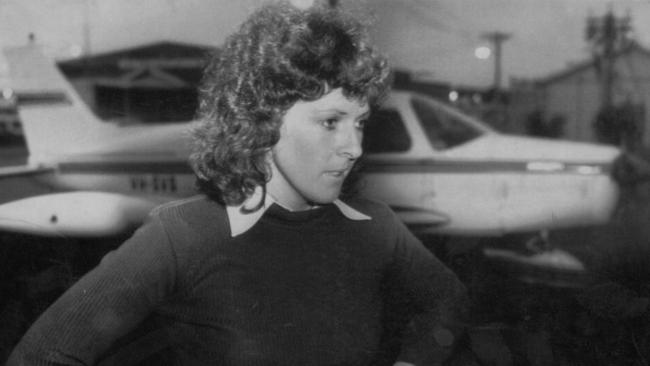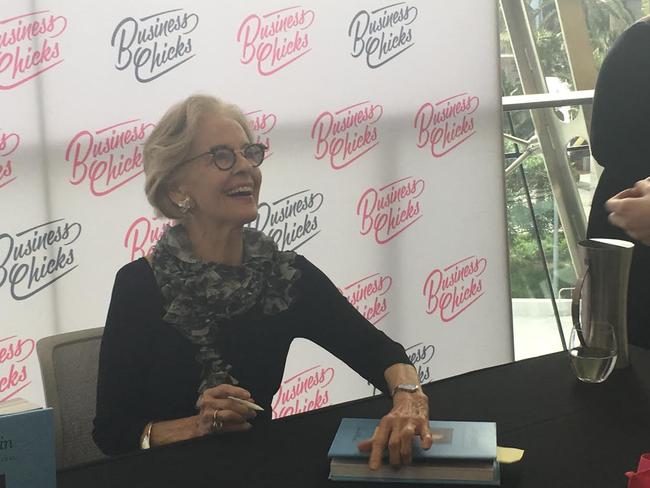How Quentin Bryce rattled the can for female pilot
It’s easy to forget how hard it was for women in the workplace in the 1970s. Dame Quentin Bryce remembers.

It’s easy to forget how hard it was for women in the workplace in the 1970s. Dame Quentin Bryce remembers.
She recalled this morning “rattling the can” for Deborah Wardley, who applied to become a pilot with Ansett Airlines in 1976.
Ms Wardley had gained her private pilot’s licence at the age of eighteen, and she had logged more than 2600 flying hours, meeting all the conditions to become a commercial pilot. But Reg Ansett did not believe that women should fly planes.
Ms Wardley took her case to the Equal Opportunity Commission, where it became the first case fought under the new Sex Discrimination legislation. Mr Ansett gave a million reasons why he couldn’t employ her: pilots needed a man’s strength to handle the plane; and also, women’s menstrual cycles made them unsuitable for piloting commercial airlines.
Women organised a boycott. Qantas still has some of those flyers, who switched and never went back.

Ms Wardley won every round of the battle, but Ansett still refused to surrender, until Peter Abeles and Rupert Murdoch took over the airline.
By chance, Ms Wardley had trained Mr Murdoch’s brother-in-law, John Calvert-Jones, to fly. He ordered Ansett to treat Deborah like any other pilot, and off she went, the first woman pilot to be employed by a major Australian airline.
She got a standing ovation the first time she took passengers into the air.
“It feels sometimes like we have to go back and do all that work again,” said Dame Quentin, during a Business Chicks breakfast conversation in Sydney this morning. Referring to a recent front page that showed off the legs of the British Prime Minister Theresa May, she said: “That old-fashioned sexism ... It detracts from the dignity of women.”
The Business Chicks breakfast was held to celebrate the launch of Dame Quentin’s new book, “Dear Quentin: Letters of a Governor-general”, which includes letters from Diggers, and Dame Quentin says it was her time with the soldiers — old and new — that she remembers most fondly from her time as Governor-General.
She recalled being in Timor, waiting to take part in an official commemoration, when she overheard a Digger say: “Which one is the Governor-General?”
His mate replied: “It’s the granny in the pink dress.”
She cherishes those memories.
Also, travelling with old soldiers, back to the battlefields of war, “having them to myself on the plane … They would tell their stories. Not for themselves, for their mates. They never complained.”
She admires “the modern Anzac, still serving their country. I would thank them for their service on behalf of my fellow Australians, and they might give me a dig in the ribs and say: It’s my job.”
Commemorative events in France — Fromelles, the Somme, the Western Front — were, she said “deeply moving occasions. And walking with (old Anzacs) through the Hellfire Pass. These men made a deep impression on me.”
Dame Quentin says she decided to produce a book of letters because “my generation was taught, as little girls, to say thank you.” Sitting down to write by hand, “there is something special about it … moving your hand across the page, you are thinking about that person.”
At age 16, Quentin would write home to her parents from boarding school. As a young mother living abroad, she would write home using those old Aerograms, “making use of all the space, going around the corners, diagonally.”
Business Chicks is a networking group for working women, and Dame Quentin recalled her own experience, trying to hang onto a career, while raising five children.
“I did that Superwoman thing. That was big in the sixties,” she said. “To be the perfect wife, host, mother, in the days of the big dinner parties. You had to rinse your crystal in blue water. Days and days of preparation. Can you imagine?”
She eventually gave up trying to be superwoman, and would later utter what may be her most famous line: women can have it all, but probably not all at once.
Dame Quentin served as Governor-General during one of the most tumultuous periods in recent political history. She recalled receiving letter from a child, saying: “We should have a lucky dip for Prime Minister.”
The letters from children were always the most special to her, including one who had named a calf for her. She still keeps up with the progress of Quentin the Cow. And she spoke about the role of grandparents, in mentoring the next generation.
‘Saying please and thank you. Kindness, courtesy, respect,” she said, which of course starts with letter writing.
· All proceeds from Dame Quentin’s book will be donated to Murdoch Childrens Research Institute.




To join the conversation, please log in. Don't have an account? Register
Join the conversation, you are commenting as Logout